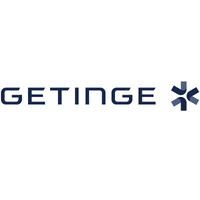Our role in the sustainable transition of the Dutch food industry
– a conversation with Ashkan Danaei about Tetra Pak’s contribution.
Tetra Pak is a world-leading food processing and packaging solutions company. Working with its customers and suppliers, it provides access to safe, nutritious food for hundreds of millions of people in more than 160 countries every day.
Its presence in the Netherlands dates back to 1954, shortly after the company launched the world’s first milk carton in Sweden in 1952. Today, almost three hundred employees work across four sites in the Netherlands. Like their colleagues around the world, they are driven by a purpose: We commit to making food safe and available everywhere, and we promise to protect what’s good: food, people, and the planet.
As a Sales Director based in Utrecht, Ashkan Danaei discusses how Tetra Pak is helping the Dutch food and beverage industry reinvent itself to meet tomorrow’s needs.

Tell us about Tetra Pak’s contribution to the food and beverage industry in the Netherlands over the past 70 years.
Since 1954, we have supported the Dutch food and beverage industry during a time of rapid growth. The Netherlands has become the second-largest agricultural product exporter in the world after the U.S. (*) Thanks to our global organisation and strong local presence, we have provided the industry with end-to-end processing and packaging solutions to enable this growth, and we’ve continued to grow with the industry.
What are these trends, and what role are you playing?
First, the Netherlands is facing competition from other countries around the globe. Post-COVID-19, the Netherlands has also experienced inflationary pressures, like many parts of the world. The third element involves efforts by the Dutch government to reduce greenhouse gas emissions in food production.
In response, we have innovated to make the industry more efficient in production while reducing its impact on the environment. Notably, for our current installed base, we are providing upgrades and other service solutions to help our customers increase their efficiency and cost-effectiveness while reducing energy, water consumption, and waste.
We have also helped our customers reduce their climate impact with new projects. For instance, we recently implemented a project that produces infant formula using 100% electrical energy, which is primarily sourced from solar and wind turbines instead of traditional gas boilers. Moreover, new packaging machines are utilising innovative technologies that reduce water usage by nearly half and cleaning chemicals by 99%.
What is Tetra Pak’s approach to sustainability?
Sustainability has been at the heart of our business since its foundation. We were founded on the idea that a package should save more than it costs, and today, our ambition is to lead the sustainability transformation to impact industries and communities positively. We have an integrated view of sustainability, from food safety and food waste to food accessibility, as well as climate impact and biodiversity, to our social responsibilities.
From a climate perspective, we have set ourselves a greenhouse gas emissions (GHG) reduction target of 46% by 2030 (vs. a 2019 baseline), which we have already reached with a 20% reduction in 2023. Our achievements in this field are recognised by the A list from CDP over four consecutive years, as well as by the Financial Times recently.


On average, beverage cartons are composed of 70% fibre, 25% plastic, and 5% aluminium. This composition is designed to protect and preserve perishable food such as milk or juice for up to 12 months without the need for preservatives or refrigeration while reducing the climate impact with a high share of renewable material.
Of course, recycling is an important focus. After separation, valuable long fibres are extracted and utilised for other paper-based packaging, such as cardboard, through the European-wide recycling network. The remaining part, called polyAl, is recycled in specialised facilities. In 2023, we invested €1 million in Roosendaal-based Recon Polymers to increase their recycling capacity. Their recycled polyAl offers a new durable material used for various products such as transportation pallets, furniture, and 3D-printed decorative objects.
We have also joined forces with other major carton players to enhance recycling and make carton packaging circular. We work closely with ACE (the European Alliance for Beverage Cartons and the Environment) and its member association in the Netherlands, Hedra. We are a key investor in increasing sustainability in packaging and complying with upcoming regulations.
We also have an eye for long-term innovation and have developed an alternative paper-based barrier to substitute the aluminium layer. It features 90% renewable content and was launched in 2023 in Portugal. Not only does it enhance the profile of the package, but it also reduces CO2 emissions by one-third.
This achievement is the result of significant investments over several years. We have chosen a radical, thorough approach to ensure this solution can meet evolving requirements in Europe and the world, allowing for industrial production on a large scale.
I want to emphasise that our development scope also takes a full life-cycle approach, addressing greenhouse gas emissions to minimise the climate footprint of our solutions for the food sector.
Concretely, we have introduced plant-based polymers as well as certified recycled polymers into our packaging, further decreasing reliance on fossil plastics. In fact, some of these innovations were first adopted by our Dutch customers, and I am pleased to share that more than 70% of our packaging solutions delivered in the Netherlands contain plant-based polymers.
On the topic of climate impact, how are you addressing greenhouse gas emissions in the food industry?
We have started an initiative we call Moving Food Forward, which identifies pathways through which, as Tetra Pak, we can play a role in the transformation of food systems.
One of its pillars focuses on enabling the transition towards more sustainable food production. By improving the efficiency of processing equipment, we can reduce energy consumption, greenhouse gas emissions, and water use. We have set ourselves the target of reducing greenhouse gas emissions in our food processing equipment by 50% (from a 2019 baseline). I cannot discuss the Dutch food industry without mentioning cheese. In one of our recent projects, we were inspired by aerospace technology and reinvented our equipment with significantly lower energy consumption thanks to air seals. We also developed major heat exchangers throughout the plant; the final product heats the plant intake and significantly reduces overall energy consumption.
At the same time, we are playing a leading role in another important field, which is also relevant in the Netherlands: the protein transition. We are working with various companies to explore opportunities in plant-based proteins. This ranges from developing new technologies for plant-based products to using fermentation to create new proteins. These innovations offer immense potential to feed growing populations while consuming fewer natural resources, thus strengthening food resilience and security. We see ‘New Food’ as the next leap forward in our promise to protect what’s good: food, people, and the planet.
How do you see the future of the Netherlands and Tetra Pak?
The Netherlands has always been at the forefront of change, and it is once again reinventing itself. We are convinced that we can play a supportive role with our commitment to innovation, and we continue to grow in one of the world’s most competitive and demanding markets. We are present in the food and beverage industry through processing, packaging, and end-to-end integration, and we have four sites in the Netherlands, including our global Centres of Expertise for Cheese and Powder.
I also believe there is a good fit between Swedish and Dutch cultures; in both countries, consumers are very concerned about the environment and have high expectations of government, producers, and retailers. This provides us with a unique opportunity to step out of our comfort zone, keep moving food forward, and support securing safe and available food for future generations while reducing emissions along the way.
If you want to learn more about our commitment to sustainability, visit our website.


































